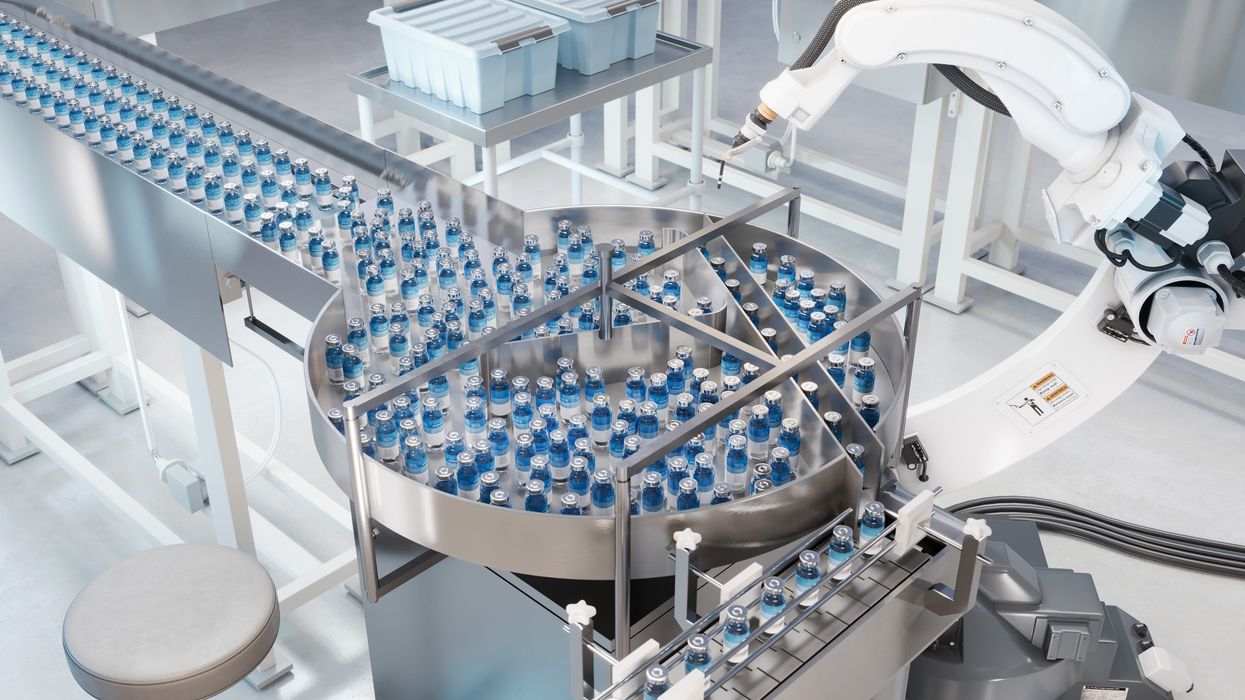US drugmakers are licensing molecules from China for potential new medicines at an accelerating pace, according to new data, betting they can turn upfront payments of as little as $80 million into multibillion-dollar treatments.
Through June, US drugmakers have signed 14 deals potentially worth $18.3 billion to license drugs from China-based companies. That compares with just two such deals in the year-earlier period, according to data from GlobalData provided exclusively to Reuters.
That increased pace is expected to continue as US drugmakers look to rebuild pipelines of future products to replace $200 billion worth of medicines that will lose patent protection by the end of the decade, analysts, investors, a banker and a drug company executive told Reuters.
"They are finding very high-quality assets coming out of China and at prices that are much more affordable relative to perhaps the equivalent type of product that they might find in the United States," said Mizuho analyst Graig Suvannavejh.
The total cost of licensing agreements, including low upfront payments and subsequent larger payouts, averaged $84.8 billion in the US, compared with $31.3 billion in China over the past five years, according to GlobalData.
A licensing agreement grants a company the rights to develop, manufacture, and commercialize another company’s pharmaceutical products or technologies in exchange for future target-based, or "milestone", payments while mitigating development risks.
China's share of global drug development is now nearly 30 per cent, while the US share of the world's research and development has slipped one per cent to about 48 per cent, according to pharmaceutical data provider Citeline's report in March.
Chinese companies have licensed experimental drugs to US drugmakers that could be used for obesity, heart disease and cancer, reflecting abundant Chinese government investment in pharmaceutical and biotech research and development.
While small molecules, like oral drugs, have been the most commonly licensed, there has been a notable shift toward novel treatments such as targeted cancer therapies and first-in-class medicines, Jefferies analysts said in a note in May.
"Chinese biotechs are moving up the value chain by the day. They are... challenging their Western peers," said Macquarie Capital analyst Tony Ren.
The growth is happening even as the U.S. and China have wrangled over tariffs and US president Donald Trump pushes a made in America agenda.
That has cut into traditional mergers and acquisitions, which are down 20 per cent, with only 50 such transactions so far this year, according to data from DealForma.com database.
Roughly a third of the assets that large pharmaceutical companies licensed in 2024 were from China, said Brian Gleason, head of biotech investment banking at Raymond James, who estimated such licensing deals would increase to between 40 per cent and 50 per cent.
"I think it's only accelerating," Gleason said.
The Trump administration is currently doing a national security investigation as it weighs if it will impose tariffs on the pharmaceutical sector.
But one healthcare analyst said licensing deals should continue because the yet to be marketed products are not impacted by tariffs.
"The law that gives the president the right to impose tariffs applies to goods. It explicitly excludes intellectual property," said Tim Opler, managing director in Stifel's global healthcare group.
In May, Pfizer spent $1.25 billion upfront for the right to license an experimental cancer drug from China's 3SBio. That is the largest such deal this year and could be worth up to $6 billion in payments to 3SBio if the drug is successful.
Regeneron Pharmaceuticals in June paid $80 million upfront in a potential $2 billion deal for an experimental obesity drug from China's Hansoh Pharmaceuticals.
By licensing a drug in development, US and European drugmakers get very quick access to a molecule which would take them longer and cost more to discover or design themselves, analysts say.
US based drug developer Nuvation Bio bought AnHeart Therapeutics in 2024, gaining access to the China-based company's experimental cancer drug taletrectinib, which recieved US approval last week.
"We consider our presence in China not only a great avenue for R&D, but we also view it as an inside track on obtaining further assets to grow our company further and find new and better therapies to offer patients," Nuvation CEO David Hung told Reuters.
What makes China attractive, said EY analyst Arda Ural, "a fraction of the cost and then multiples of time."
Analysts have pointed to large drugmakers strategically securing rights to drugs at lower cost and running efficient early-stage trials in China to obtain important data, paving the way for global trials and potential earlier market entry.
"It's a little bit of a wakeup call to our industry," said Chen Yu, Managing Partner at U.S.-based healthcare investment firm TCGX.












